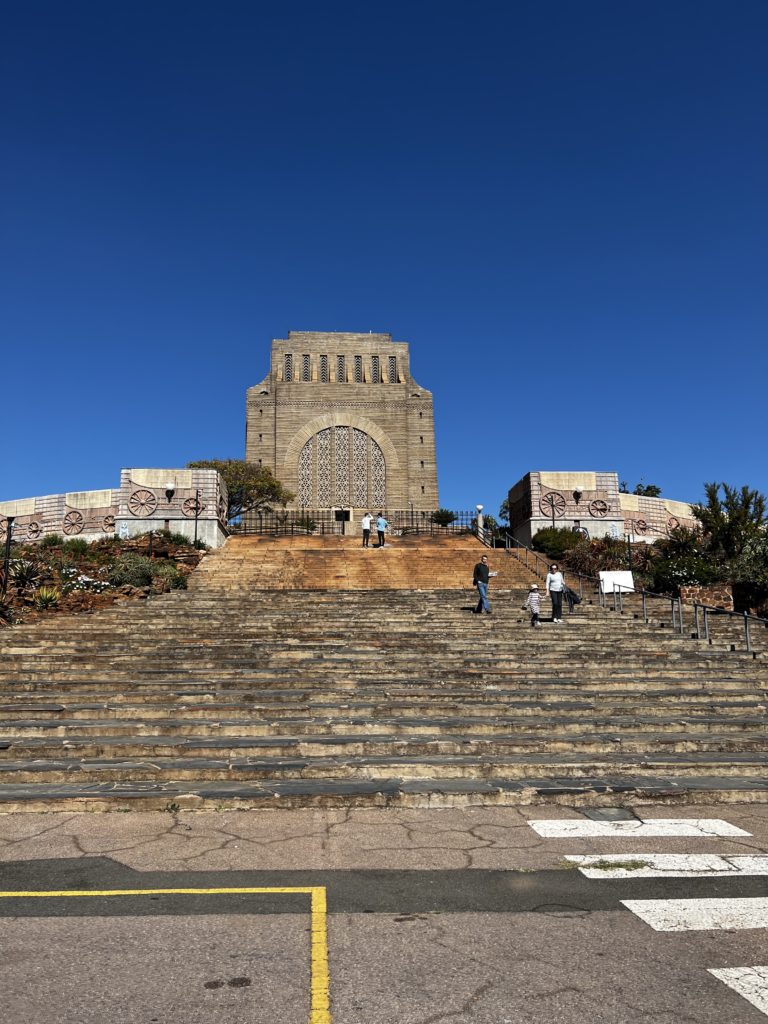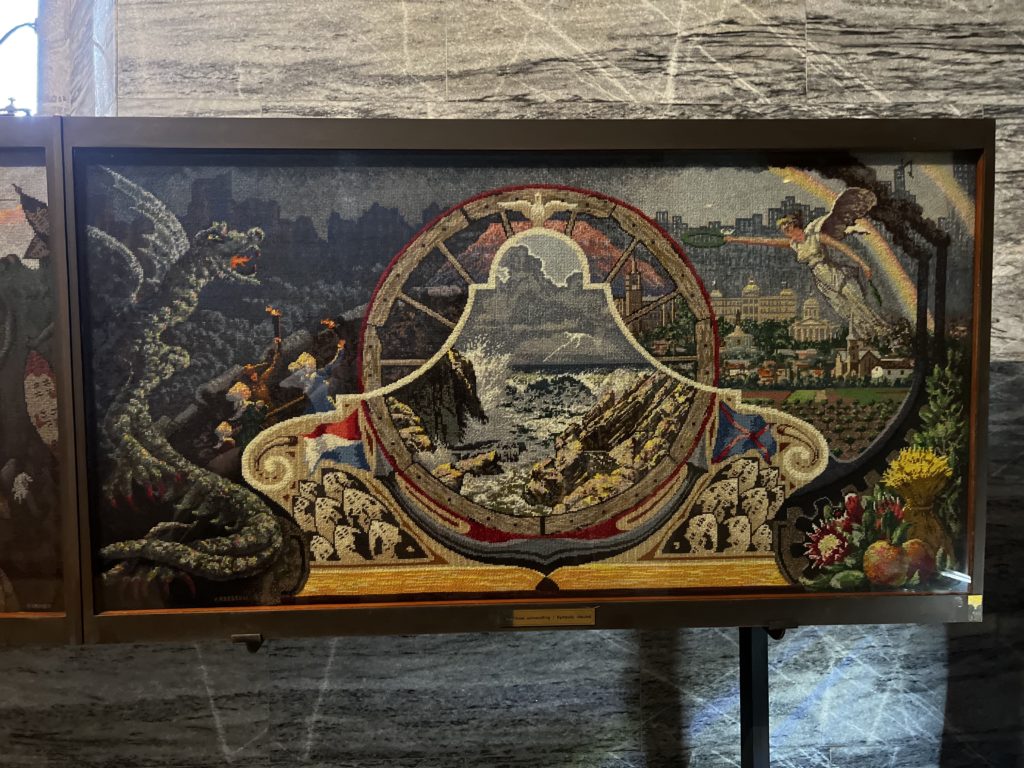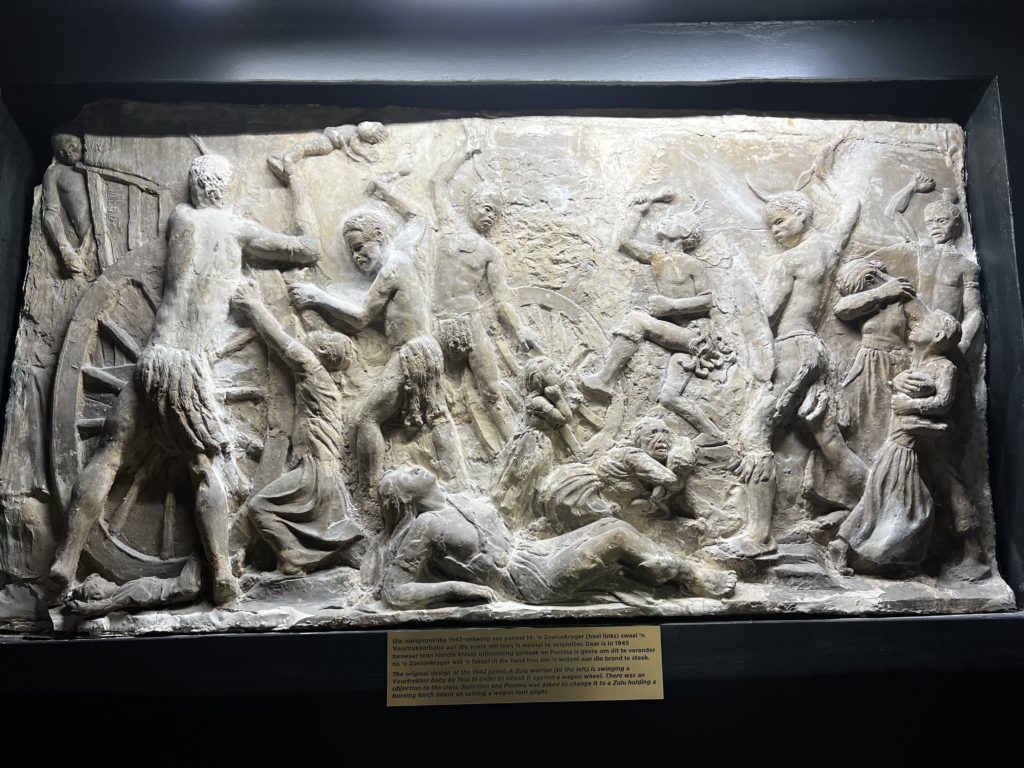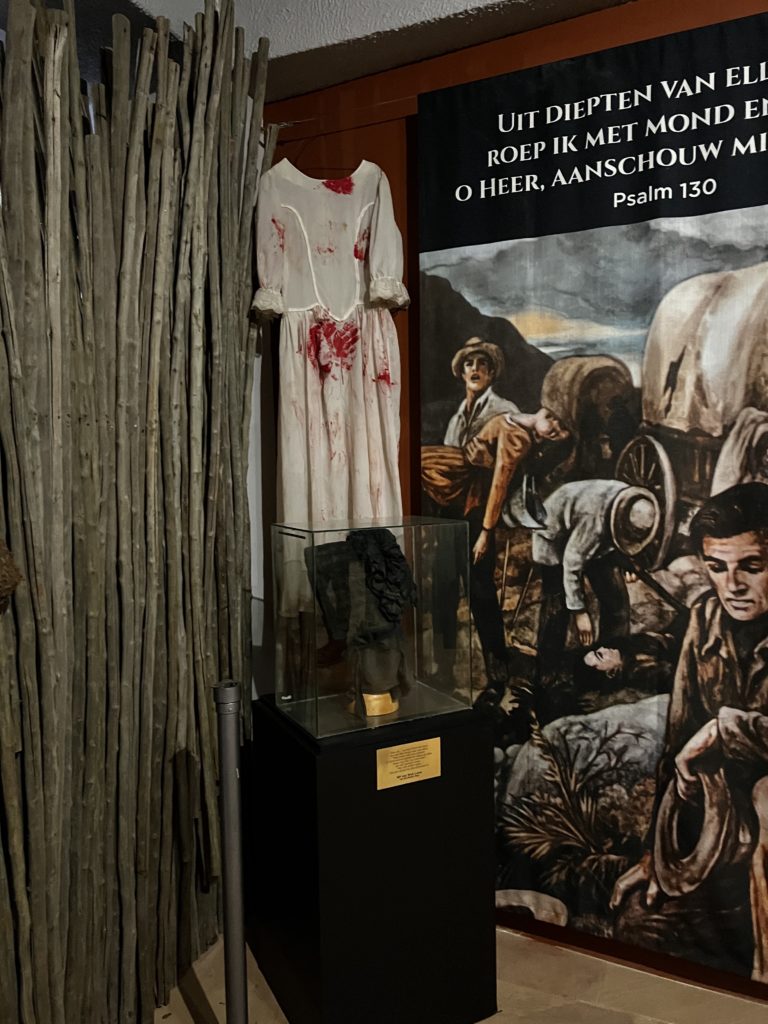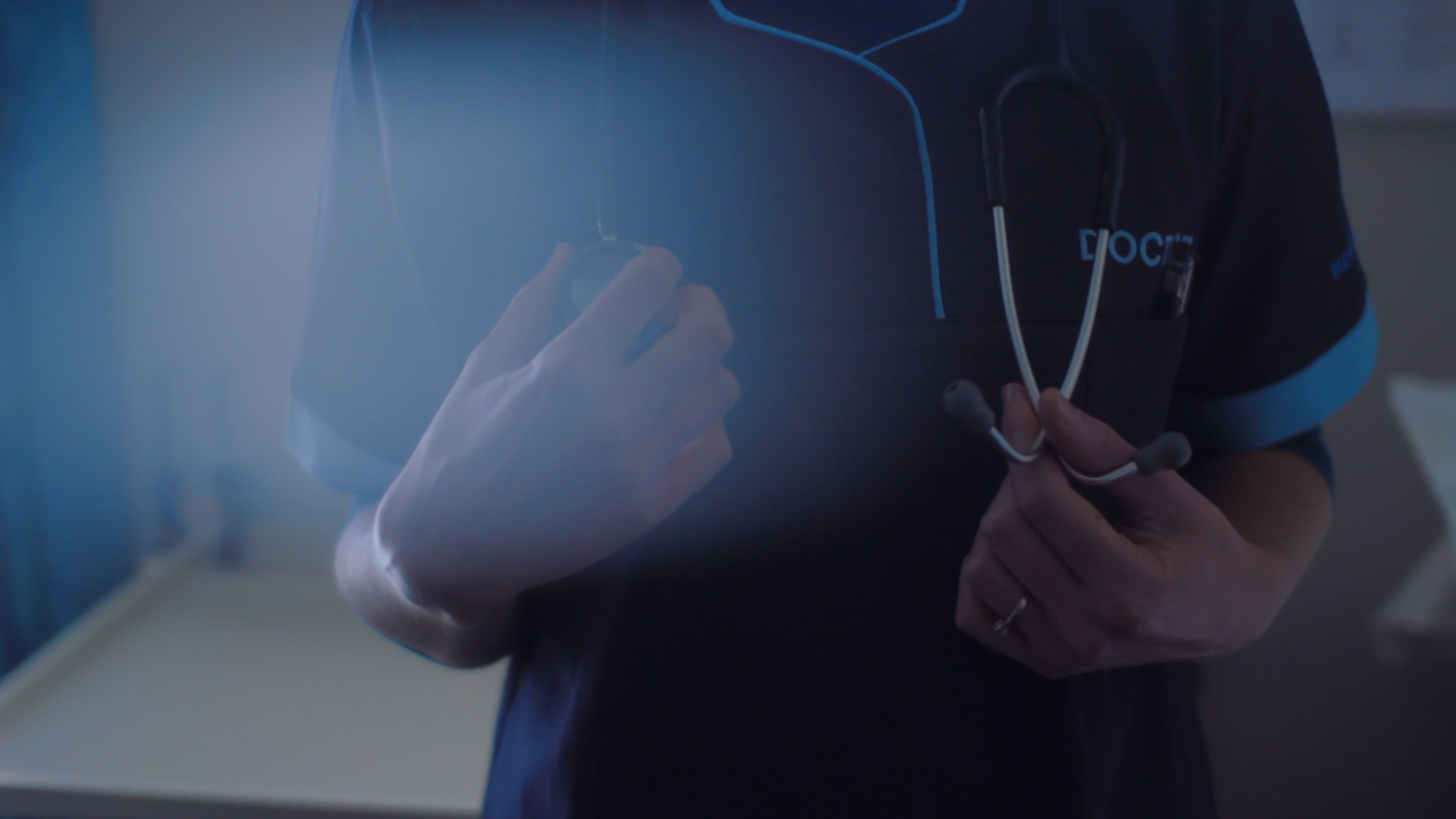What I appreciate most about my peers here is the unspoken agreement to not just understand, but also share the Truth of a story. Whether it be the decision not to sugarcoat the World Health Organization’s inefficiency to recommend oral TB medication over injectables or the way we critically analyze the Voortrekker Monument, we stand together in our convictions and discuss them over smoothies and milkshakes at lunchtime.
As we entered, the Khoi proverb, //hapo, welcomed us to Freedom Park. This African story states, “a dream is not a dream until shared by the entire community.” //hapo teaches us how African storytelling was suppressed and the aspirations for the South African nation were silenced. But, it is only when we truly understand history that we can move forward to a future that is shared by the entire community.
It is clear, though, that not everyone understands this true history. Or at least not the entire Truth. Perhaps it was tapestry that recalled an APUSH image of the “Manifest Destiny” or the depictions of the Zulu people as savages who swing infants from their feet, but I can confidently say that the Afrikaner perspective of South African history is… uncomfortable? Frustrating? Shocking? All of the above? It is the lack of nuance that upset a lot of us. To make the final quote of the museum that they might be born under the English flag but won’t die under it, but fail to mention their own flag that oppressed and killed millions of Africans. To hang a white dress with a bloody hand-print to symbolize the Afrikaner lives lost in the Blood River battle when the reality of it was genocide. To flex one’s biceps in the center of the monument and take a tongue-out selfie with the Pretoria landscape in the background. The insensitivity was appalling and it is clear by the behavior of other visitors that not everyone understands the true history that //hapo requires.
But the red, craft store paint on the white dress is not fooling us. Not after the tears we had to hold back listening to Lwando read out the letter on The Blue Dress. Not after Hector Pieterson. Not after seeing the legacy of Apartheid on townships like Soweto. It is our responsibility to recognize the Truth and tell the most authentic story possible. Both in our documentaries and when we return home and Yale.
I began to wonder if there was another reason why today made me feel so uneasy. I realized that it was the parallels between American history. Remembering lessons about the French Indian War, genocide of Native populations, and the legacy of racism that remains today made me reflect on being an American. The past and our present shapes me into who I am today. I have been conditioned to feel fear when I hear the locking of our shuttle and to think of the Confederacy when I see a statue of a man on a horse. But instead of the American tendency to ignore the atrocities of our past, I hope we bring //hapo with us back to Yale and learn to “recognize the injustices of our past..” as it is the only way to understand our true history and move forward.
